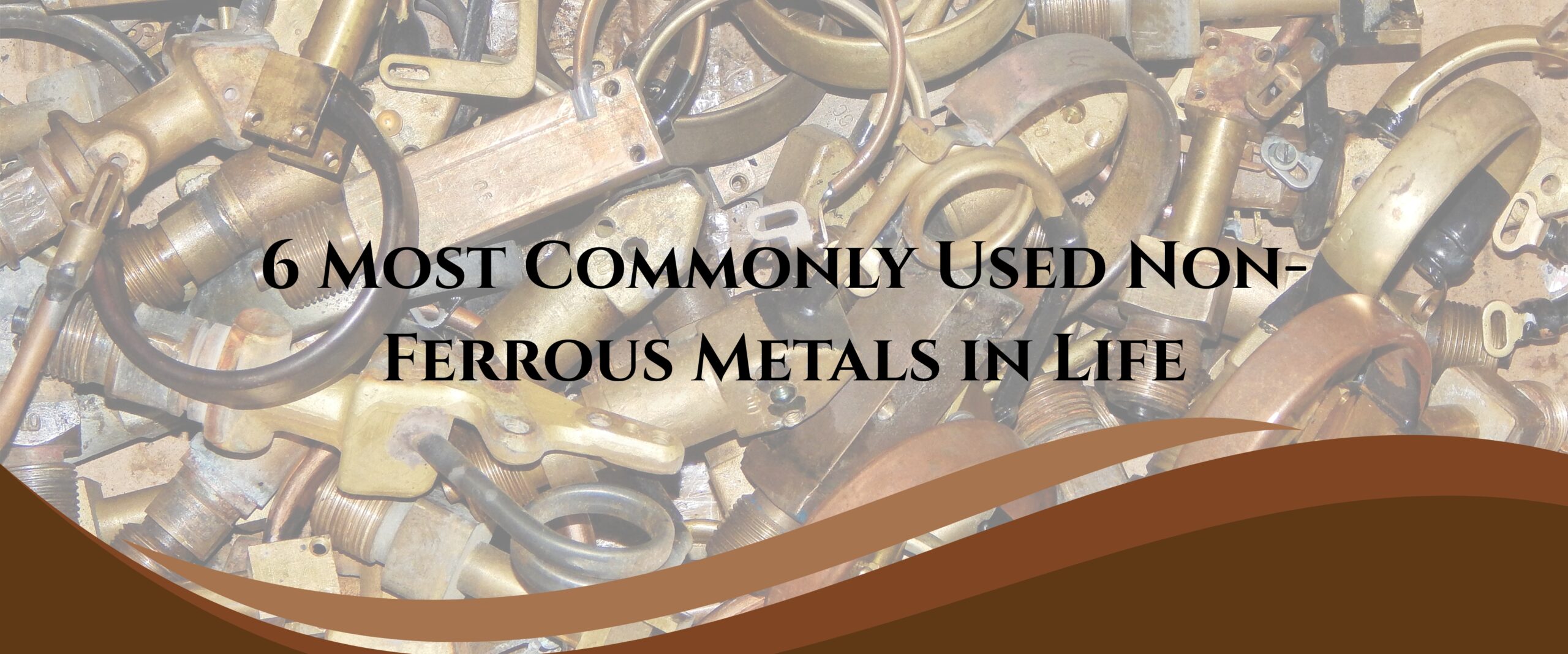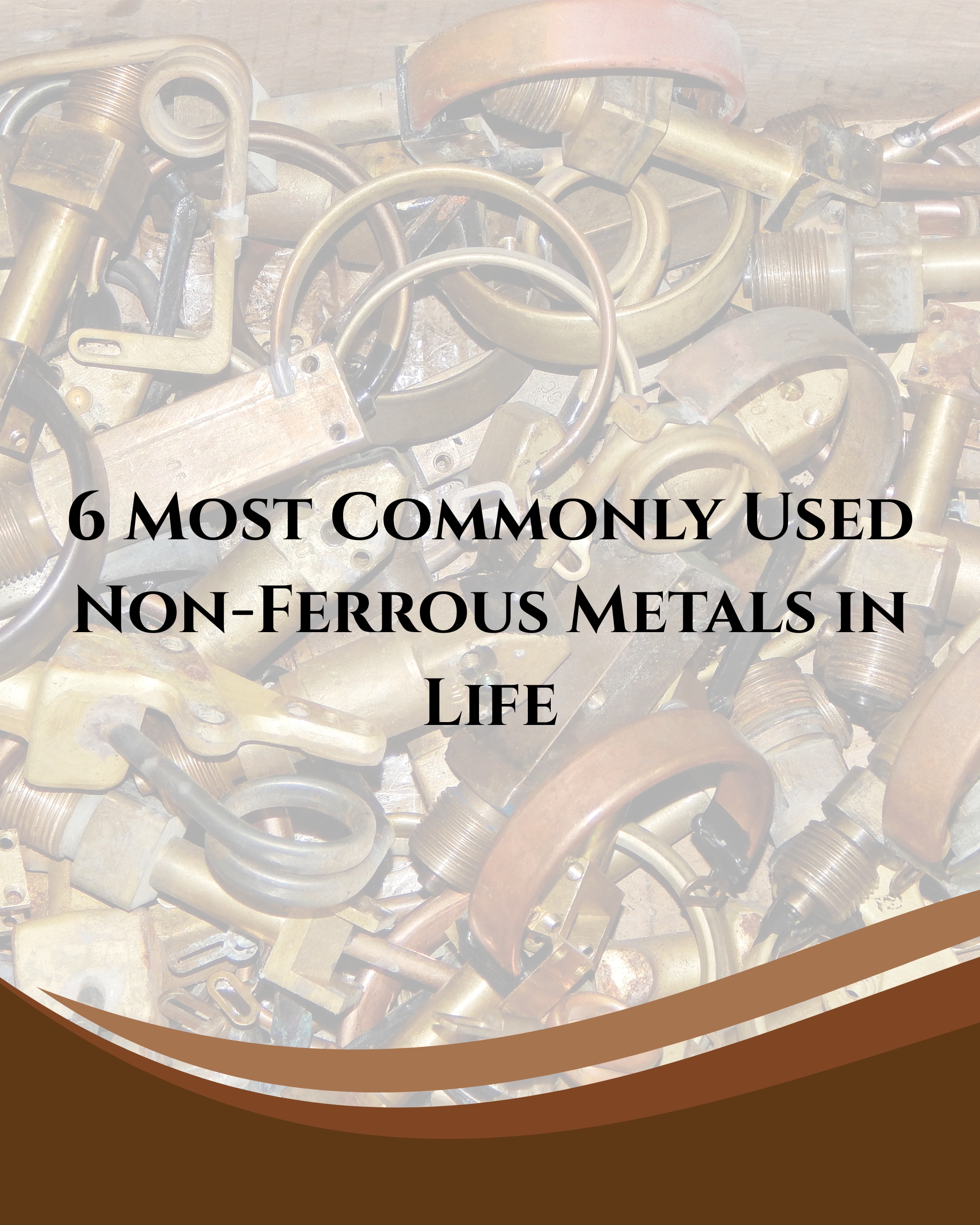

6 Most Commonly Used Non-Ferrous Metals in Life
Metals are the backbone of modern civilization. From the wires that bring electricity into our homes to the vehicles that take us across cities, metals are indispensable. While ferrous metals like iron and steel are widespread, non-ferrous metals play an equally important role due to their corrosion resistance, lightweight properties, and recyclability.
In this article, we will explore the 6 most commonly used non-ferrous metals in life, their unique features, applications, and why non-ferrous metal products and non-ferrous metal scrap products are vital to both industry and everyday life.
What are Non-Ferrous Metals?
Non-ferrous metals are metals that do not contain significant amounts of iron. This makes them resistant to rust, more malleable, and lighter in weight. Common examples include aluminum, copper, zinc, lead, nickel, and tin.
Unlike ferrous metals, non-ferrous metal scrap products can be recycled repeatedly without losing their core properties, which makes them highly sustainable.
6 Most Commonly Used Non-Ferrous Metals
1. Aluminum
Aluminum is one of the most widely used non-ferrous metals. It is lightweight yet strong, making it ideal for aircraft and automobiles. At home, you see aluminum in soda cans, foil, and kitchen utensils. Its recyclability ensures aluminum scrap products remain in circulation for decades.
2. Copper
Copper is the lifeline of the electrical industry. Its high conductivity makes it perfect for wiring, motors, and electronics. You also find copper in plumbing systems and coins. Due to its longevity, recycled non-ferrous metal scrap products like copper pipes and wires are always in demand.
3. Lead
Lead is soft, heavy, and corrosion-resistant. Its primary use today is in batteries, especially in vehicles. Due to its density, lead is also used for radiation shielding in hospitals. Recycling lead scrap helps reduce environmental hazards linked with mining.
4. Zinc
Zinc plays a vital role in protecting steel from rust through galvanization. It is also combined with copper to produce brass. From bridges to automobiles, zinc ensures durability and longevity. Scrap zinc is highly valuable in the industrial recycling market.
5. Nickel
Nickel is strong, heat-resistant, and magnetic. It is a key ingredient in stainless steel, batteries, and coins. With the rise of electric vehicles, demand for nickel in lithium-ion batteries is increasing rapidly.
6. Tin
Tin is non-toxic and commonly used for coating steel cans, ensuring food preservation. It also plays a role in soldering electronics. Its anti-corrosive properties make it valuable in multiple industries.
Why Are Non-Ferrous Metal Products So Important?
- Durability: They last longer than ferrous metals in harsh environments.
- Recyclability: Non-ferrous metal scrap products can be endlessly recycled.
- Sustainability: Recycling reduces energy consumption and mining.
- Industrial Demand: From construction to electronics, industries depend heavily on these metals.
Recycling and Scrap Benefits
Recycling non-ferrous metals is one of the fastest-growing industries worldwide. It helps in:
- Saving energy – Recycling aluminum saves up to 95% of the energy needed for primary production.
- Protecting the environment – Less mining reduces deforestation and pollution.
- Supporting the circular economy – Scrap metals re-enter industries instead of ending up in landfills.
This makes non-ferrous metal scrap products highly valuable for sustainability goals.
Global Demand and Future Trends
The demand for non-ferrous metals is rising globally, especially with the growth of renewable energy and electric vehicles. Copper and nickel are critical for battery production, while aluminum is crucial in lightweight vehicles and aircraft. The future of infrastructure, green energy, and digital technology will heavily rely on non-ferrous metal products.
FAQs About Non-Ferrous Metals Market Trends
Aluminum foil, copper wires, and tin cans are common examples.
Because they can be recycled endlessly without losing their properties.
Construction, automotive, aerospace, and electronics industries.
Conclusion: Future Outlook
The 6 most commonly used non-ferrous metals in life — aluminum, copper, lead, zinc, nickel, and tin — are everywhere around us. From food packaging to high-tech batteries, these metals are shaping the modern world.
Their recyclability makes non-ferrous metal scrap products a cornerstone of the sustainable economy. As industries evolve, the importance of non-ferrous metal products will only continue to grow.
Looking to source or recycle non-ferrous metal scrap products? Trijith ensures quality, reliability, and sustainable solutions tailored for industrial needs.
